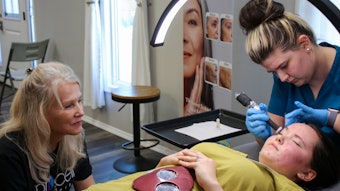A main theme in many motivational speeches is that performance is often influenced by attitude. People’s performance is 80% their attitude and 20% their ability. When referring to attitude, it doesn’t refer to happiness; instead, it references their attitude toward their job.
An attitude example
Charlie travels extensively for his job; so often that he is constantly observing the customer service on airplanes. The other day, Charlie encountered an overbearing flight attendant while in first class.
After observing her pushy behavior for some time, Charlie couldn’t resist speaking up about her lack of customer service skills. He said, “You know, I think your customer service skills could really use some improvement.”
“Well, sir,” the flight attendant said. “I’m here mainly for your safety.”
That was all Charlie needed to know. That statement alone answered his question about how someone in the customer service business could be so lacking in skills. In fact, she’s not lacking; her ability is just fine.
Flying as much as Charlie does, he knows that pilots always say, “The flight attendants are here mainly for your safety, but if there is something they can do to make you feel more comfortable, please feel free to ask.” Well, this flight attendant actually believed this.
So, what is driving her performance? She knows how to be polite if she wants to be. She knows she’s a representative of the airline, and she probably has to deal with huffy customers every day. So what’s driving her poor customer-service performance? This poor woman thinks she’s in the safety business and not the customer service business. She believes her job is safety. What’s driving her poor performance? Her attitude!
And her attitude is: “I’m not here for your pleasure or comfort; I’m not even here to make sure you come back again. I’m here for your safety.” And because of that, she can be mean. She can be nasty. She can be bossy. Why? Because she’s not in the customer-service business; she’s in the safety business. And because of her attitude, she is perfectly OK with pushing customers around.
Customer service is extremely important in the skin care industry as well, and is often affected by a skin care professional’s attitude. Keep these tips in mind and consider changing the way you and your team approach your job.
Attitude drives performance. How you describe your job is just as important as the tasks you perform.
Take off the blinders. In the flight attendant’s case, the plane probably really isn’t going to crash, so she should keep in mind that, although safety is important, most of her time deals with customer service.
Perception is everything. Although you might not believe your job is in customer service, your clients need to think that you do. If your are perceived as being polite, then people will more willingly listen to your skin care advice and recommendations, and act accordingly.
Carl Van is the president and CEO of the International Insurance Institute, as well as a professional public speaker, business course designer and international trainer. He is also the author of Attitude, Ability and the 80-20 Rule: The Making of Exceptional Performers (CreateSpace 2011). Veronica Dunbar is a consultant specializing in social media.










